Text
August 30, 2023 - Sake bar
Words are never really adequate, are they? For conveying all of the... the specificity. The individual specificity you find everywhere you look. Every thing in its time and its place, unique. Unlike any other.
Hades is telling me that my work is futile.
He's right, of course. Words can never capture the whole of what I'm experiencing. They never could.
But I've got to try. All I can do is fail as little as possible. If I can preserve one fraction of one moment, if I can bottle up my memory and share it with someone else, even if imperfectly... It's worth doing.
Because Hades might have eternity, but we do not.
#oh oh oh OUCH#beautifully put.#struggle sometimes with this show and words.#so easy for us all to code it in the same repeated phrases because it is so hard to capture.#or to give up wording it at all. but to word it is to show love.#to remember it.#to be persephone's tapes we later can return to.#and to use our craft of words in remembering their craft...art creates art creates art.
17 notes
·
View notes
Text
man this sucks (<- likes a niche character that hardly has any fan content)
29K notes
·
View notes
Text

She's everything. He's just Ken.
10 notes
·
View notes
Text









26 notes
·
View notes
Text


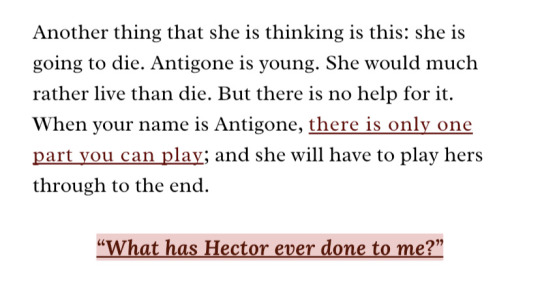
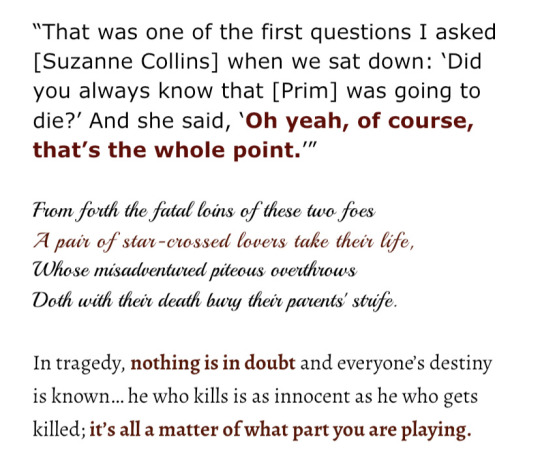


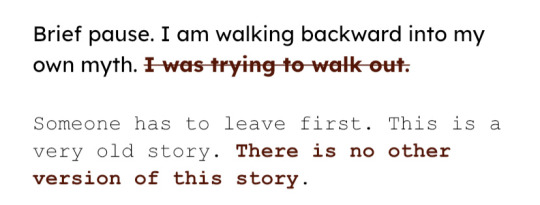

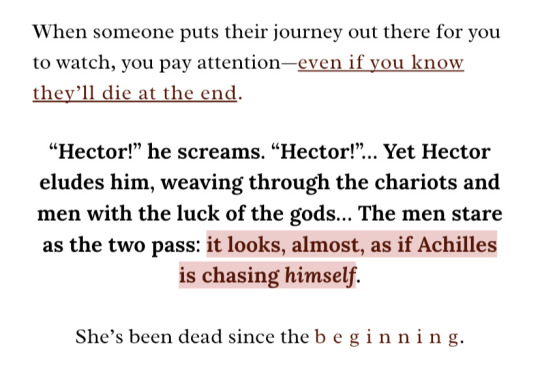
on tragedy, fate, and inevitability.
oresteia, robert icke // theatre of the oppressed, augusto boal // song of achilles, madeline miller // the book thief, markus zusak // antigone, jean anouilh // revisiting mockingjay ahead of the hunger games prequel, entertainment weekly // romeo and juliet, shakespeare // h of h playbook, anne carson // war of the foxes, richard siken // the road to hell (reprise), hadestown // planet of love, richard siken // they both die at the end, adam silvera
11K notes
·
View notes
Text
incredibly important reasons to reblog: saw this in person now.
JORDAN AJADI as POLYDORUS.









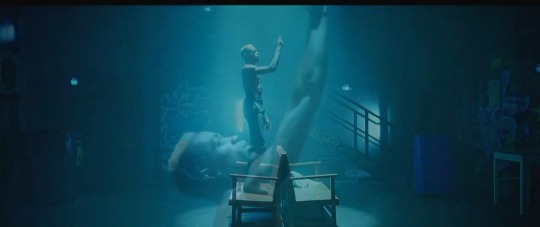
#in terms of expression...jordan is top tier. like both facially? his eyes? they're magical. ghostly but sparking with vivid display of#emotion and all he is going through. and then there's his body language! shit shit shit!#even in just how he sits and moves...and then there's his dancing which is a whole other layer.#his nautilus! his fury! i want to see him in every role now.#on the topic of polydorus though in general. saw a bit of jahmarley polyd and from what i did see. also need to follow.
17 notes
·
View notes
Text
SET IMAGES, the burnt city, part two.


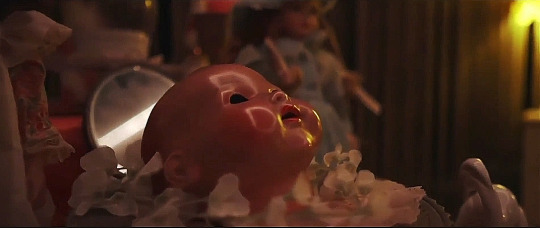



26 notes
·
View notes
Text
SET IMAGES, the burnt city, part one.
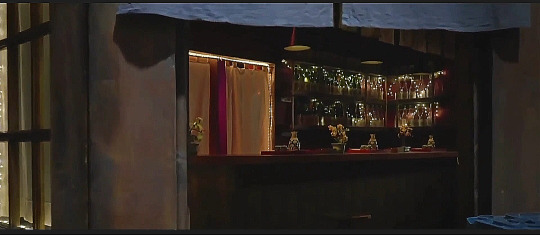





27 notes
·
View notes
Text
MAYA MILET and HARRY PRICE as ARTEMIS and APOLLO, part two.


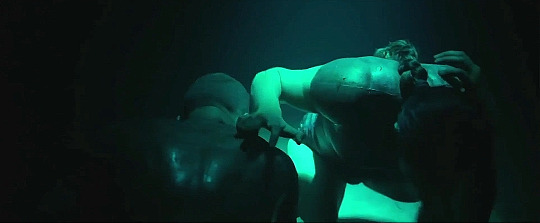
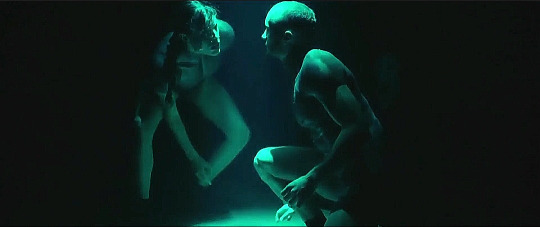

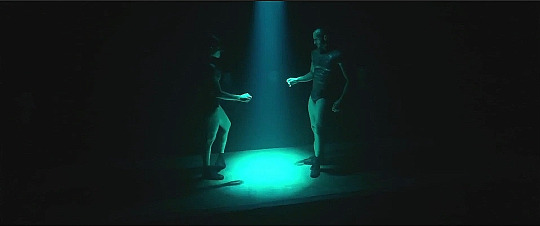




4 notes
·
View notes
Text
Sunday jam:
youtube
#jamming out to this rn as i write.#i love it so much. what a bop.#v fond feelings for this song as it's the first pd dance i saw. just struck me dead with awe and love.
6 notes
·
View notes
Text
of course you have prophetic dreams and pronouns
36K notes
·
View notes
Text
CONVERSATIONS WITH THE DAMNED: SCENE TWO - IPHIGENIA & POLYDORUS.
trigger warnings as mentioned for the content of the burnt city. and the burnt city spoilers. also, like, warning that half the stuff i write will not necessarily entirely be adhering to tbc, cheers to elements like iphigenia in various places plays & general greek myth & what have you. also shout-out to various fan compilations of details and loops, discord and the tbc wikia ily. anyway. iphigenia and polydorus. this got long and i got sad. enjoy x
SCENE TWO: IPHIGENIA & POLYDORUS.
She had already killed one man in the aftermath of Troy’s falling. One man, quick to fight, quick to love, quick in the direction of anyone who would offer him up a little anything. He was confused like that, the man in the uniform of a soldier, and she thought that she might have known him once, in another life. In Iphigenia’s life. The trouble with dying herself was that she was not so sure if she could still claim that name; each syllable was a soft breath, fluttering on the wind she was lost to provide. It echoed a different world. Resurrection made everything seem different. Even her body, gangly limbs before, felt different, and not merely due to the lingering sensation of death and the relief of a goddess. It knew how to move differently; in some instances, it imitated her mother, and in another instance, it imitated that lovely-strange man who came to them on her wedding day. Aegisthus, he was called, and he moved with such a charm. But not merely the nice sort of charm; it was not only endearing but the sort she could imagine as encouraging. Her mother certainly enjoyed it. The memory of their bodies were the gifts she took forward, then, into her next life, for a dead girl could not carry much else.
…One man. Singular. Was that all? The girl recalled the slicing motion, and how, upon cutting into his throat, it felt as if she had made the motion hundreds of times before. The muscle memory of it had frightened her – just as killing a man frightened her, she was even deeper scared by the practiced ease of slaughter rippling through her. Perhaps death was a strange beast like that: maybe her resurrected self would feed the altar of Artemis by slicing countless men, and maybe a dead girl experienced past, present, and future, all in one interchangeable blur. Not quite an oracle, not quite alive enough for that, but something. Princess, Prophetess, Priestess. She could well imagine such quantities of blood would be demanded. The goddess lured her in with thoughts of revenge but soon demonstrated that it was a demand to quench her own hunger. Lost to the dictates of mortality, the dead girl was charged instead to fulfil immortal longings…and the goddess spoke of murder in her honour as if honour and murder were interchangeable.
That was the soldier sacrificed, then. Sweet man complicit in sacrifice and further sacrifice and so there was less of a sweetness in him. It had been so easy to use the shock of all that to pop the noose around his neck – oh, poor dear man, to be dealing with the storming in the mind watching all that death brought. Must have been most dreadful to suffer through; almost as dire as having your father kill you for the sake of a bit of a breeze. Really, she felt for the soldier. Or, at least, Iphigenia might have felt for him: the girl in virginal white would have uttered that they all were chess pieces in a wider game, and it was not the soldier’s fault that she was sacrificed, or that the other girl was sacrificed, for the soldier was merely that. A soldier battling wider games, and he had not been the one to lie about a wedding or to wield a dagger. Iphigenia would have understood that mental wounds were a very real thing to be considered. But Iphigenia…oh, in later years, a girl would be burned at the stake by her father, all for the sake of his wars. And a man who loved that girl like a daughter, who found a toy deer where she was killed, would find out this happened. He would shout that ‘she was good, she was kind, and you killed her.’ Oh, does that story remind you of someone? The story is just like Iphigenia’s, and Iphigenia was good, and she was kind, and she was killed.
The girl Iphigenia became did not reek of so much piety. She was scared of murdering someone but she also found the notion just a little seductive. When alive, she had no wedding night. Everyone always talked of those with murmurings of a little pain, a little duty, and even amongst all that, the potential for actual bliss. With Neoptolemus, she was supposed to lie. They should have been led to bed, the Oracle helping her dress as mother, Clytemnestra, squeezed her shoulder, telling her that it might hurt a little, but that he might also grow to love her. That it would not be so bad, and what a high honour this was for both of them, how gladdened all were at the union. She should have laid out on the sheets, nervous but expectant, and coaxed the second-in-command forward…he would have been glad to wed her, proud of her, wanting to take her home after all the war had ended. But none of that happened. No wedding night for Iphigenia, so the sacrificial deer resurrected had began to move in all the ways an emboldened lover suggestively might. She and the soldier danced in Ciacco’s. She dosed his drink. She swayed and lured and he stumbled into her trap. She urged him through the strange streets of Troy. She laughed and let him lie her down on the altar-countertop of Hesperides and her flower was a corpse as she whispered to him amongst the red ones. She coaxed him into Mycenae. She teased him till he deliriously let her pin him upon the tank traps, and there was a soldier in her net, and there she taught him just what it was to die in falsified lust and love.
And it felt like a kiss. Roughened and red. And Artemis wanted more; and perhaps the priestess also did. The goddess seemed to have a distaste especially for Greek men, soldiers notably, but she wondered if returning to Troy might offer better spoils – Boys, Boys, Boys! Most were away, fighting at other fronts, led by the virile father of Troy, and yet she knew some must remain. Mycenaean men were thin on the ground; there was one man with a bottle, but there was a sense surrounding him, as if another goddess frowned upon her coming near him; there was another, hugging the soldier she had killed, but….he was supposed to be her bridal bed – no! Iphigenia’s bridal bed. Her body recoiled at the notion of swaying with him, though once she had thought of nothing more. In a notebook in Iphigenia’s bedroom, one could not read it without realising the dear state of affection and esteem Iphigenia held Neoptolemus in. A girlish crush she begged the gods to fulfil, and then they did, and then she was dead. Even if he played a role in her deception, the dead girl felt enough of the ache of her former life to leave him grieving; she had killed his other love, that was enough revenge enacted to him.
She let the winds her life bought carry her forward into the devastated city.
Polydorus had always liked his shirts; nice and tailor-made, smart enough for the son of a king, casual enough for a prince. Some in Troy preferred a ghastlier sort of wear, but linen served him neatly. He looked well in them, and amongst the impending invasion Troy had been threatened with for some years (of course, the invasion had since come to pass) he thought it good to put on the sort of attire that would have an assuring quality to it; it might do the citizens of his one-day city good to see an effort being made. Not that they truly needed much assurance, however. Even with most of the men – too many of his brothers, and his dad included in that number – away fighting on various fronts, life persevered vivaciously. With a vitality. It pulsated through their clubs and bars. Admittedly, an undercurrent of hushed whispers and tense gazes had come to accompany life in the recent months, as pressure mounted, but they otherwise thought that part of their fight meant living still – otherwise what was the point in fighting and being free, if they succumbed entirely to fear? Cassandra strung portents of doom to them every so often, and mum had never been the same since dad left to fight (he was too old, far too old, but he was far too good), but they lived.
Notably, the life seeped throughout the time he spent with Polymestor and his close compatriots in the…seedier whispers of Troy. Mum often turned a blind eye to some of the behaviours that went on there, so long as it did not become too darkly criminal. She respected Polymestor, to an extent, enough to trust the son she doted upon with extremity into his arms. Whereas the women created a fortified front together, he was safer away from that – some were confident that Polyxena would be the one to symbolise the fall of Troy, the sacrifice and warning, but that belief was mainly lodged in Cassandra. The threats for women, they all knew, would be abhorrent; they were the living spoils of war. However, they were kept alive, with a purpose between their legs – all that disturbed the young fellow – whereas a son, a boy, a man, he was perceived as the greatest threat. Hector had already sent away Andromache, before it was too late to leave Troy, for she carried in her arms Astyanax, the babe of Troy, a little boy. He would be killed if Troy fell. So, there Polydorus was, not so safe as Astyanax perhaps, but safe as houses could be in Troy. Learning the ropes from Polymestor, tentative at every move the older man made, the ways in which he praised strange beasts, and conversed with men of care and yet none. There was a difference in the two men. He knew it implicitly. Polymestor watched him strangely. He let him have a gift, once, though, given to him by that man of care…a necklace, and he wondered if it were a nice gesture, for the manner in which it was yanked over him frightened him.
He was right to be scared; how ironic that the company in which life seeped throughout each crevice was the same company that would make the life drain out of him. Perching against some roof – it was like the dead boy was given wings – he felt the darkness in the thick air spit against his naked chest. How he missed his lovely shirt. It was stupid, how a simple shirt could echo with such protection, even if he would never survive in the end. With his chest bare, he felt too vulnerable….logically he knew the creature death made him could not quite die again (could a dead boy die again?) but it was the sense that mattered, not reality. Scratching his shoulders, where wings wished they were, an itch crept through him. Not the itch of a phantom shirt, the itch that wanted to burst from the inside out. It was a feeling he was not too used to – for what use had a prince for anger, till war told him what it meant?
Angry. It liquefied him. That sensation, beating out in his stolen body, tight breaths leaving him. The taste of death still kissing his mouth. It swilled around his palate, frantically bouncing around every beat in his body, the poison in death still stumbling in his mind. Blending with the vengeance in his soul. He stalked through his former haunts in Troy, lithe body trembling against furniture, clawing into stairs and benches as if to demand his existence upon them be acknowledged; only a sea of white stared back. The anger refused to manifest itself in rage; it took it upon itself to be grief also. He wanted both to grab the sea by the shoulder and shake it till it saved him – and yet he wanted also for his arms to collapse around them, holding them tight, so that he might be held in return. Stand-ins for mum. He had tried so hard to be grown-up lately, trotting round princely and prepared, but death made him regret any outward pretence. He just wanted to hold her once more. How his heart riled with horror against Polymestor for his actions! The Thracian would be sorry, though….he knew that the red mist would blind her eyes with fury. She would bark and claw and howl and he would learn.
Slumping his way through countless spritzes of graffiti, he recognised some of Polyxena’s signature style; his sister had always enjoyed taking the occasional can out, and during the years of war, obstinately put to mum that it was a public service. Art enriched the soul, and the act also made her look relatable in the public eye. Running his finger across it, he wondered if she were alright; glitches of darkness ran through Troy earlier. He hoped she was with Macaria. One of the designs, in the very corner of the wall, was a little heart with M & P tucked upon it. Inconspicuous enough to be anyone. But he knew. Moving on from that sweet token, he lunged a hand out across the wall as he readied himself to turn the corner – only for a soft hand to clasp onto his. He let the hand tug him round. There, holding onto him, skin against skin, was a girl. She led his hand to a graffitied stag, and placed his touch upon it.
The girl who struggled with the name Iphigenia watched the young man as he let her guide him. He seemed almost to find it astonishing that she existed. As she removed her touch from him, allowing him to trace the outline of the stag alone, she felt repulsed. It was not that he was repulsive. No. Rather, it was that all she desired had already been taken by another. Blood ran warm enough in her body, flesh prickling. For a goddess had sacredly touched her. This…boy…though, he had crawled out from the tenements where the dead continued to die in arduous squalor, and Hades usurped his flesh. He was cold. Part of him empty. Part of him more than he was before. She massaged her hand. Running her finger across her lip, it was like his cold might linger there. Iphigenia’s body had collapsed into the sand, loved even as she perished, and her body had still run warm when it was placed in the Hinterlands. Like her, the boy had died. But she had died with at least a touch of hope – the touch of him, the shadows hanging heavy, confusion and fury had run amok in his slaughter.
‘You’re dead, boy,’ she commented at long last, her lips tugging up before falling again; there was little use in pursuing him, what is dead might not again die.
He looked up from the stag to her. ‘What’s it to you? You’re dead also. You see me.’
‘But you are not the only one who sees me; I am more than dead for I will never die. Immortal,’ or so was the presumption she was running with, a theory untested.
‘Psyche…’ Polydorus uttered, eyes wide open. A prince needed to be learned; he considered himself to be fairly well versed in history. Studying the other, he tried to discern if her beauty was of the most unmatchable sort – part of her had a touch of goddess present, but perhaps in another role, another life. Besides, there were plenty more who half-died only to become a goddess. ‘Perhaps not.’
‘Not I, no. Though it is kind of you to make that mistake,’ she laughed lightly. ‘My death did not bring me revived to her goddess-hood, nor was it merely a sleeping sort of death.’
‘You did die, then. Do you consider death immortality, or were you actually revived?’ He wondered if he might be too pressing, asking too soon, but he felt it was his right to pursue some line of questioning.
The expression she offered up was curious. Bordering on coy, hiding little secrets in her lips. Yet beneath that, a falter, a deeply human sort of hesitation and aching. Tilting her head, she clicked her tongue. ‘Hmm…what an inquisitive dead sort you are.’ Sacrificing him was not on the table, too late for that, so there was little to gain in toyingly talking to him. Leaving him and going on her spree flickered briefly across her mind. Still, she stopped, leaning against the wall to cement her presence. For a time, she would stay. ‘You in Troy believe in the gods as much as anywhere else, I presume?’
‘In the gods we trust,’ the boy diligently quoted. Stamped in his mind from too many occasions of stamping it lately. ‘Many of them, but we put our faith in Apollo especially. Our patron.’
‘What a darling parrot you are. His twin resurrected me. Though I think she might’ve been involved in my death.’
‘Why? How?’
‘Do you intend to seek her out? Beg her to look at you and bring you back? If I were you, boy, I’d quiet your hopes.’
Past the point of no return – that was how his body felt. He was a transformed creature, and would never be a resurrected one. Some were killed by suggestion of a goddess and then brought back like their death was a trifle, a jest that one could heal the wound of. Some were sacrificed to a bull-headed god and then castigated shadelike into the streets where once they breathed. Death told him his only purpose was to stalk Troy with death in his heart and fury in his mind, but he took offence at that propelling thought. He looked at the girl-woman and shook his head. ‘Someone else has a hold on me, and it isn’t the sort who would resurrect me. I know she would not.’
‘You’d only owe her a debt if she did, and I dread to imagine what that would be. Perhaps she’d bring you back only to have me sacrifice you.’
Did she know how he had died? If she did, her words were cruel and taunting. Darkness shot through his eyes as he narrowed them in her direction. ‘Again? Will you use poison like the first time I was sacrificed?��
Pausing at that, the girl stepped a pace towards him. His back touched against the stag as he shifted to the wall he stood near. Looking him up and down, she grasped his chin, yanking down so she could peer into his mouth. Willing herself to see the traces of it left behind. At last letting go, she looked him directly in the eye. ‘Another sacrificial lamb. It seems that both sides of this brutal war enjoy their ritual slaughter.’
‘Mine was not even for war. It was for greed and a strange god….you’re Greek.’
‘And you are Trojan; congratulations on your geography. Which god?’
‘Moloch.’
‘Is he commonly worshipped in Troy?’
‘Not particularly. But I was in the safekeeping of one who did. And the god is hungry and demanded a sacrifice…so I believe.’
‘How beastly of him. Nor is that very good safekeeping.’
‘Moloch is a beast. You need only look at the statues of him.’
‘Did you ever worship him? I suppose it makes being an offering easier, if you did.’
‘Briefly, attemptedly. When I was in the hands of the one who poisoned me, I did try to.’
‘I worshipped Artemis. One of our servants used to hold my hand and take me to visit a grand shrine of hers in the woods. I celebrated coming-of-age in honour of her, acting as a bear and laughing as I did so. Never briefly. Faithfully. I…it was never clearly communicated that she asked for me to die, but she had a hand in it, I’m sure of it. It makes it easier, as she did resurrect me, after all, she acknowledged my faith…it was easier also, knowing the sacrifice was not in vain…’ and she trailed her words away, for all her words were of Iphigenia, and she was confronting herself with the fact they were one and the same, no matter her attempts to separate them, no matter her attempts to hide away the self-grief. She halted, for she had been thinking it might not be in vain, for father got his winds after all. How bitter that was – perhaps one girl dying for the sake of a whole army was not so bad, perhaps life went on in that fashion, and the air would still be breathed by some, but if that was being selfless, she would allow herself to be selfish. She was not merely a speck to be erased. She wanted to live and if she had been warned out in advance, she would have cried daddy, pleaded for her life still, for his arms and her future. Into the night she would not have quietly gone. Vain enough in love for living to not reduce her death to one not in vain.
Polydorus thought she looked sad. As if all her bravado and snakelike silkiness initially was a mask that fell away to truth. He had debated, initially, if she were more girl or woman, but as she stopped her words, there was a young sort of sorrow tormented upon her. She was battling something. Her face went on a progress, slapping itself into contorted discussions of hollow realisation, regret, loss, disgust, anger. Unsure of how to proceed, he glanced down to where her hand fell; he blew against his hands a couple of times, willing warmth into them. Then he reached out and squeezed hers. ‘Death is never easy. We live in a time where it seems so casually occurring; man kills man and man kills man and man kills man. But it does mean the individual experiences it any better…even if they try and push onto it the notion that it serves as a higher purpose. I’m sorry you had to die.’
‘Had to…neither of us had to, I don’t think,’ briefly venomous, she half-spat, half-shook out the words, all underlaid with an incredulous breath of woe. ‘I’m sorry we both died. That you are still dead. But my father killed me for your city and you…for some beast, and would things have still been the same if we did not die? Did we really have to?’
‘Insensitive wording. You have a right to be angry. I’m angry also but I don’t know how to demonstrate it…I’m a little scared of Moloch, or I was, and I do wonder what he might do, what he might have done, if I did not die. Doesn’t mean I’m glad about it. Or that it was definite.’
‘I’ve found killing soldiers an outlet for my anger.’
‘I’m not a soldier.’
‘No. You’re dead.’
‘Soldiers can be dead. They’re one of the likeliest categories of death.’
‘You don’t dress like them. Or behave like them.’
‘I suppose not. Most of my brothers are soldiers.’
‘Are they now?’
‘Some like Troilus are at once your romantic and your warrior, your student and your killer. Every valiant thing. Soldiers can be multitudes.’
‘Troilus…I recognise that name,’ she slowly spoke, recollecting the genealogies she studied growing up. One must know the enemy. ‘I do. You’re one of Priam’s boys.’
‘Mum – Hecuba – always hated it when people said that. She preferred people saying I was one of Hecuba’s sons.’
‘Prince Boy. We are once more more alike than we might have believed.’
‘Polydorus. My name’s not boy, it’s Polydorus,’ he gritted out, though intrigued to hear her comparisons.
‘Prince Polydorus. I was a princess, just as you were a prince. I was Iphigenia. Clytemnestra’s daughter, if you prefer the maternal side first….Agamemnon’s daughter, for those who prefer to hear the paternal.’
‘Princess Iphigenia…why do you speak as if you are no longer her?’
‘She died. I was resurrected.’
‘Doesn’t necessarily explain why.’
‘You’re growing bolder.’
‘Tell me.’
‘No need to whine – gods, how petulant boys can be when they think their tone is bold and brave. Iphigenia died…Artemis resurrected me, and with a new lease on life came terms in the lease. It felt as if the coming-of-age were complete, and I did not feel like Iphigenia anymore. She thrived in a different world, a different hope, till they treated her like a butcher would treat a deer. I have to kill men for Artemis, sacrifice them in her honour. Iphigenia was better than that.'
‘There’s a difference between petulant and inquisitive. I’m struggling with my own identify at the moment. I only wanted to understand another, and now, I slightly do.’
‘Thank you,’ she spoke, in a stiff small voice. Being around the boy reminded her too much of the lovely girl she thought to be lost.
‘Did you come here to kill me?’ Polydorus dared to ask another question, realising her purpose might have been that.
Hesitating, she eventually nodded. ‘You. Or someone. Some man. Death saved you.’
A sad thought, if not morbidly humorous. ‘Maybe I should send you in the direction of the one who sacrificed me.’
At that, she laughed. ‘I’m getting tired. Another day.’
‘Mum’ll probably get him anyway. I know she will. I hate the fact she’ll find I’m dead.’
‘I worry for my mother also…I should not feel guilty for having died, but I do. I heard her scream as Iphigenia fell to the ground.’
‘You should return home.’
‘I’m no longer Iphigenia.’
‘You could be.’
‘I’m scared father will be there. I don’t…I hate what he did…he’s my father, though. Some of me wants to hug him again,’ she confessed, though she also desired for him to atone.
‘You say he killed Iphigenia. If you are not her, then you may hug him. Love him, even.’
‘How well you twist my identities…you should go, also. Watch your mother. Even if she can’t see you, boy – Polydorus – she might sense you.’
‘Only if you go home also.’
‘I will.’
‘At least the girls will be there. To look after her.’
‘Oh, my dear boy,’ her lip trembled, realising again what his name meant; Polydorus…brother to the other dead girl.
‘What is it?’
‘I’ll go home now. You should look in the shadows. Look where you walk and look at the shades. Death is not so finite – look at me, after all!’ She half-heartedly attempted a smile, but it was snatched away from her. She touched a hand to his cold shoulder. ‘There are still flowers to be had.’ Leaving him, she clutched her dress, just where her heart was, and walked away.
Polydorus stared into the distance. She was gone, and he was scared. He turned around, looking in the opposite direction of her, where the sea awaited him once more. At them, he wanted to scream. ‘You’re watching us – always, never a moment of peace – what is it? What happened?’ There was no reply, though some of them swayed sad on their feet, traces of apology written in their smallest gestures. ‘You’re all as hungry as gods, and just as quiet to our prayers.’
4 notes
·
View notes
Text
Presenting... the Big Web Of Burnt City Characters

12 notes
·
View notes
Text
CONVERSATIONS WITH THE DAMNED: SCENE ONE - HADES & CLYTEMNESTRA.
a series i occasionally hope to embark upon, in which i have a list of the burnt city characters in a generator, i generate randomly two names, and script a scene between the two. a little dialogue writing exercise. first two names generated...hades and clytemnestra, a pairing which i admit excited me. spoilers for the burnt city & their loops within!
SCENE ONE: CLYTEMNESTRA & HADES.
Mycenae. Clytemnestra's palace.
CLYTEMNESTRA: You’re not a very good dancer.
HADES: It was never my party to celebrate; all I needed to do was enjoy the rhythm.
CLYTEMNESTRA: Tell me, was it even her party?
HADES: She enjoyed it whilst it lasted. So did you.
CLYTEMNESTRA: I didn’t enjoy letting her go, but I had to. She was so brave, walking away in red and white, to what should have been a new world – and I let her go, I let her leave me.
HADES: Mothers have to let their daughters grow up eventually. Marriage can be a liberating prospect.
CLYTEMNESTRA: My daughter grew right into the grave, you cunt.
HADES: My wife also had to find her way underground.
CLYTEMNESTRA: You’re not a very good dancer, but then, do you believe yourself to be a good husband?
HADES: I do all I might.
CLYTEMNESTRA: It might never be enough. I thought myself to be a good wife. But he took my dear girl from me.
HADES: No matter the path she took, she would have had to speak farewell to you eventually.
CLYTEMNESTRA: A mother can cope with her daughter married; daughter weds the greatest soldier and mother keeps her daughter just as her husband keeps daughters husband in his ranks. A mother can cope with her daughter becoming a handmaiden; she will be proud to see her live and blessed. But a mother cannot cope with death – not of her daughter, not of her little lamb, not slaughtered for the sake of gods and men, futile men, sacrificing dearest life for the sake of sacrificing and screwing a few more women across the winds. Don’t console me with pathetic farewells when you know nothing of the grief of mine.
HADES: You are quick to anger with your words; you have a wicked tongue. It is rather amusing, though unpleasant to receive. Especially when I do not mean to console you, but to converse with you. Though I do know a great deal on farewells.
CLYTEMNESTRA: You are immortal, if I know you for who you are. Six months is a pittance, barely a breath to wait, till you see your wife again. I’ll never see my daughter again, so your – conversing – is unwanted.
HADES: How little you know. But then again, you would not. It seems so….ah, yes, it is curious, how real this all must feel. The unending toil of it. No end to your grief.
CLYTEMNESTRA: How many times have we all prayed to your kin? Too many times, and look at all the good it has done us: you speak in riddles, you all do.
HADES: How it must seem that way. Our musings fall only on mortal ears.
CLYTEMNESTRA: It’s insipid, how you remind me of our bodily finality.
HADES: You would be surprised at the perseverance of your form. Life pushes onwards. Cyclical.
CLYTEMNESTRA: Why? Because I push out life? I squeezed out her, and look where that got us. The cycle is torn. It won’t go on, not when maiden never steps into the role of mother.
HADES: I don’t speak of that cycle. You’re a presumptive woman, Clytemnestra.
CLYTEMNESTRA: And I don’t mean that there’s only a cycle when a woman screams out a babe. Look where that role got me, after all. But I must presume, with you, for the gods do like to presume our fates. It’s only fair we get a turn in the seat of judgement.
HADES: It’s an unpleasant seat to rule from, sometimes. Oh, it can be the most fun, but certain situations are more difficult than others.
CLYTEMNESTRA: Poor man. Poor god.
HADES: I’m glad you agree. It isn’t merely a ball, stopping in to dance at a bridal party, tapping my toes a little. I know you think my six months are a piece of cake. But…even when the six months end, and she is with me once more, there is a different sort of aching at play. Whenever your husband returns from war, does he remember you? Remember himself?
CLYTEMNESTRA: It depends on your definition of those questions.
HADES: And I am interested in why you need such preciseness.
CLYTEMNESTRA: Agamemnon…Agamemnon…his family have been at war since before he breathed his first breath. Even his parentage was a disputed war of its own. The man himself, my grandiose husband, started to fight when he was still a pup, before he kicked those down with his own boot. He would always, officially, come back as the man I married, and yes, he’d remember me, dutiful wife keeping the home fires burning. But on the inside, it was not always so. He could be distant, a ghost to his own self. Not a weakened shade, thinned of his normal self; he could be strong with his fury, I saw all that. It would be as if he forgot who he was at home, and only knew the man who went to war. I never liked seeing that man. If he wasn’t angry, he was bruised, his soul hurting. It was Iphigenia who brought him solace then, our little girl. She was the one to wake him from the war…I know then that he will never awaken from this one.
HADES: I see. I do, really. Your words are like little opera glasses, clarifying the image.
CLYTEMNESTRA: You, then, why do you ask me all this? Your wife. Does she behave like that? When she returns to you.
HADES: She forgets me altogether. Steps into the darkness afraid of this world, not knowing she is the light that means she must hold no fear. It is not only I who conducts this world: she takes her veins and makes it electric. She, however, does not realise that when she returns…that is why I ask. There are certain wounds even the gods must experience, and certain wounds even the gods cannot heal. You pray to us; who shall we pray to? King…judge…master…I am all those things, but even I must take a backseat. Till she remembers. Not merely me but her own most potent art. Ah, I should not be telling you this, but it is nice to converse with others than shades. You’ll forget soon enough.
CLYTEMNESTRA: I’m sorry she forgets you.
HADES: How wonderful – I’ve elicited sympathy, even from you! A treat to possess.
CLYTEMNESTRA: You possess nothing of me, for I have nothing left but anger to give.
HADES: How you and yours heave with dislike for me.
CLYTEMNESTRA: Have you spoken to Agamemnon?
HADES: Perhaps. It did not bring him joy, you know.
CLYTEMNESTRA: It is the action that matters, that is all. And he murdered our darling girl.
HADES: Only action? Purely that?
CLYTEMNESTRA: All the regret in the world cannot bring her back to my arms.
HADES: Is that why you find comfort in the arms of another?
CLYTEMNESTRA: Have you been observing my private business?
HADES: Not personally, but I like to believe I hold a clear enough record of all that occurs in these palatial grounds.
CLYTEMNESTRA: Do you appreciate it? The love affair I am undergoing. Does it appease the man in wait for his wife? For I love him.
HADES: Upon this stage of war, I see lovers. Most of them are adrift.
CLYTEMNESTRA: But we are joined together.
HADES: Your husband’s lineage has never taken kindly to the theft of a wife by another man; his father lost his wife to his brother, and culinary horror was devised from that…and in return, the brother who stole the wife…to gain vengeance for the consequence of that adultery, bore a son with his daughter – the very product of which you dally with now. And, of course, this whole war…your brother-in-law, and his wife stolen, and your husband did not take kindly to that theft. We gods, of course, frown on the actions of Atreus, but there is also rather a disagreeable pattern being set in these actions. It is a displeasing song to hear. A teachable story.
CLYTEMNESTRA: The gods cannot speak of what is good and proper in love. We all know their actions.
HADES: You dined with him on a banquet of meat, as if you were devouring a sacrifice. In that, you both established yourself as gods; I need not, then, take the opinion of those who discard the true ones.
CLYTEMNESTRA: If I prayed to you, would you aid me?
HADES: I make the horse run…
CLYTEMNESTRA: Right into Troy.
HADES: …I paint this whole show till you all tumble like oil streaks…
CLYTEMNESTRA: So paint my vengeance. Show him the value of sacrifice.
HADES: ...But I will not paint your prayers.
CLYTEMNESTRA: So be it.
HADES: You might regret this.
CLYTEMNESTRA: As he did. I give you another soul for your collection.
HADES: The gods do not so easily forgive.
CLYTEMNESTRA: My daughter is only ash. But ash is forged from fire and hers still burns in my heart, so much that every beat rages across my body. Perhaps I will regret my decision. But for now, I am only rage: do you not see it in my blazing eyes? To his kingdom, he will come; and I will burn till he drowns.
HADES: I must go now. I have business; my wife, you see. But we might see one another again, when you taste again ashes on your lips.
CLYTEMNESTRA: I hope she remembers. I do. But I hope in remembrance, there is also heart. A lacking feature amongst Olympus.
HADES: Oh, you do speak boldly to our kind. It is most refreshing.
CLYTEMNESTRA: Your kind stole my weakness. How now might they wound me further?
HADES: How I pity you, Clytemnestra. Really, I do...the way you act is such a dear sight. But I told you, I've my glasses, and this is such an exquisite opera. When the curtain falls, will you be so strong? Or will you weep once more?
CLYTEMNESTRA: We are not an opera.
HADES: And yet I always watch you crumble. Again, and again, and again. Your hands always reach out, in the end. You cannot bear ash. The curtain falls and crushes you under it.
CLYTEMNESTRA: The riddles of the gods.
HADES: It is not yet time for you to interpret them. But give it time. You'll see. And then you shall not.
CLYTEMNESTRA: Strange fellow. Strange god...go, now, to your wife. This dismal scene I must need now act.
Hades exists. Clytemnestra readies.
5 notes
·
View notes
Text
PUNCHDRUNK PHOTOSET MASTERLIST.
JORDAN AJADI as POLYDORUS.
MAYA MILET and HARRY PRICE as ARTEMIS and APOLLO, part one.
MAYA MILET and HARRY PRICE as ARTEMIS and APOLLO, part two.
ANDREA CARRUCCIU as AEGISTHUS, VINICIUS SALLES as AGAMEMNON, and OMAGBITSE OMAGBEMI as CLYTEMNESTRA, part one.
ANDREA CARRUCCIU as AEGISTHUS, VINICIUS SALLES as AGAMEMNON, and OMAGBITSE OMAGBEMI as CLYTEMNESTRA, part two.
the tenements, THE DANAÏDES.
the tenements, SALMONEUS.
set images, the burnt city, part one.
set images, the burnt city, part two.
WRITING MASTERLIST.
the watchman.
kronos.
the necessity of her flesh, poem.
cassandra, poem.
innards of a white mask, poem.
new year rambling.
dionysian ritual rambling.
clytemnestra & hades.
iphigenia & polydorus.
#just wanted to be able to find all my shit in one place. love you tumblr blog search.#if anyone wants to use the photos from the doc feel free to 😊 all i did was screenshot and sharpen.
5 notes
·
View notes
Text
the tenements...THE DANAÏDES.

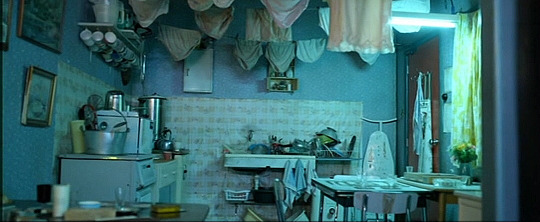



#behind the mask#spoilers#pov you def thought there were more moments on this.#it's v nice to be able to make a record of these moments; mainly thinking it'll be a nice collection for when 😭 god forbid show ends#i plan not to. post the persephone moment whilst it still runs though. some sanctity.#and some other scenes.
12 notes
·
View notes
